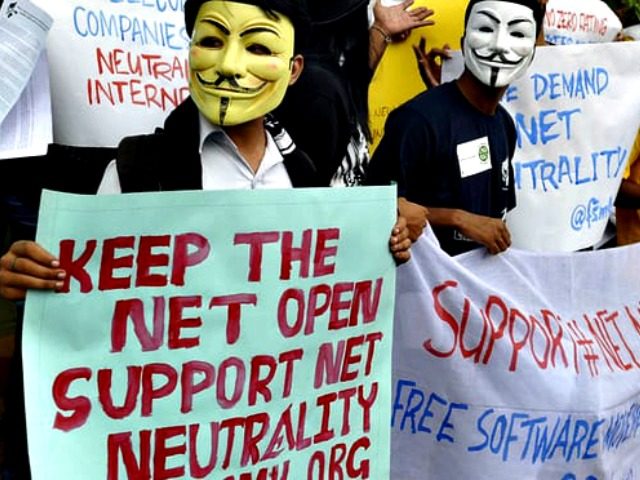Net Neutrality proponents are continuing to push for their policy even though they were unable to stop the Federal Communications Commission (FCC) from dumping it.
The Republican-controlled FCC’s 3-to-2 vote in December to repeal the Democrat-controlled FCC’s February 2016 move to apply Depression-era Title II rules that governed the old AT&T monopoly to the Internet, is set to become effective on June 11.
With repeal looming in less than two weeks, Silicon Valley and its allies have moved the battle to the courts, the U.S. Congress, and the public’s hearts and minds.
Opponents of repealing Net Neutrality filed over a dozen lawsuits in federal courts. The U.S. Ninth Circuit in late March consolidated legal complaints by 22 states, the District of Columbia, Mozilla Corp., Vimeo, Inc., Public Knowledge, Open Technology Institute, National Hispanic Media Coalition, Benton Foundation, Free Press, Automattic, Foursquare Labs, Expa, Kickstarter, Shutterstock, Etsy, California Public Utilities Commission, and the County of Santa Clara into one class action suit. But it is expected to take about a year for the effort to reinstate Net Neutrality to reach trial.
Opponents of the repeal also pushed through a U.S. Senate bill on May 9 to reverse the FCC’s repeal. On the strength of Silicon Valley lobbying and 1.5 million constituent phone calls, every Democrat and three Republican Senators approved a Congressional Review Act resolution that would undo the FCC’s repeal. But the resolution would require passage in the U.S. House, where Republican opponents hold about a 20-vote majority opposing Net Neutrality.
All of this means that the most important Net Neutrality battles will be about winning the hearts and minds of the American people. But when the University of Maryland polled voters on Net Neutrality using the arguments of the supporters, and then using the arguments of the opponents, voters showed significant support for both positions.
About 83 percent of the American public and 75 percent of registered Republicans opposed the FCC discontinuing Net Neutrality when the repeal was described as allowing Internet Service Providers, like Verizon or Comcast, the right to deny customers access to all Internet websites; being able to make certain website downloads faster or slower; and being able to charge customers an extra fee to visit specific websites.
But 48 percent of voters and 35 percent of Democrats in the same poll supported repealing Net Neutrality when told that the regulations are unnecessary, are preventing new digital innovations, and have stifled America’s adoption of cutting-edge 5G download speeds available in other developed nations.

COMMENTS
Please let us know if you're having issues with commenting.